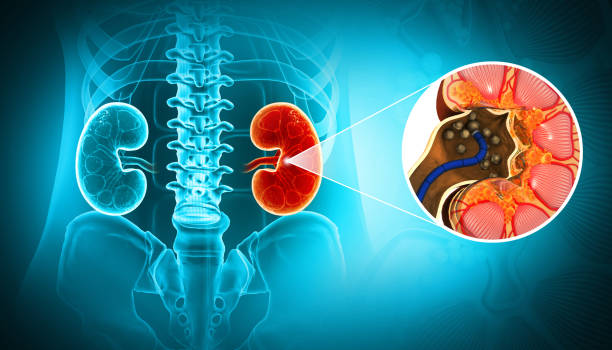
Kidney Stone

Kidney stones are very small, hard deposits that form inside the kidneys. They are made up of minerals and salts that have accumulated in the urine and formed solid crystals. Fortunately, there are effective endoscopic treatments for kidney stones that can help relieve many symptoms and prevent complications.
Symptoms of Kidney Stone
If kidney stones are left untreated, they can lead to more severe complications such as kidney infection. Contact a kidney stone specialist in Ahmedabad if you have any symptoms like:
- Sharp pain in your back, belly, or side
- Burning sensation or painful urination
- You notice blood in your urine
- You experience nausea and vomiting
- Constant fever and chills
- Digestive symptoms (not common)
Pain Management
Over-the-counter pain relievers like ibuprofen and acetaminophen can be helpful for mild to moderate pain. For more severe pain, your kidney cancer doctor in Ahmedabad may prescribe stronger pain medication.
Drinking Plenty of Water
Drinking plenty of water is crucial for treating kidney stones. Water helps to flush out the kidneys and urinary tract.
Medications
Several medications can help to break down and dissolve kidney stones.
Risk Factors for Kidney Stones
- Less liquid consumption
- Frequent Urinary tract Infections
- Genetic predispositions of stone
Extracorporeal Shock Wave Lithotripsy (ESWL)
ESWL uses shock waves generated by a machine called a lithotripter to target and break up the stones in the urinary tract. During the procedure, the patient lies on a table, and the lithotripter sends shock waves through the body to the targeted stones. The shock waves pass harmlessly through the soft tissues of the body and focus on the stones, breaking them into smaller fragments. After the stones have been broken up, the small pieces can be passed out of the body naturally through urine.
Ureteroscopy
Ureteroscopy is often recommended for patients with smaller kidney stones, as it allows for the stone to be removed without the need for major surgery. The procedure is typically performed under general anesthesia or sedation & takes between 30 minutes to an hour.
Percutaneous Nephrolithotomy (PCNL)
During the PCNL procedure, a small incision is created in the back, and a thin, flexible instrument called a nephroscope is inserted into the kidney. The nephroscope allows the surgeon to locate and remove kidney stones. PCNL is typically performed under general anesthesia and requires a hospital stay of one to two days.

